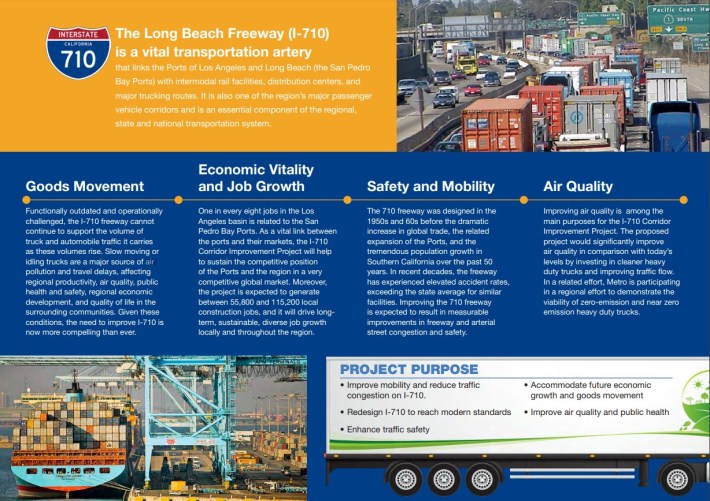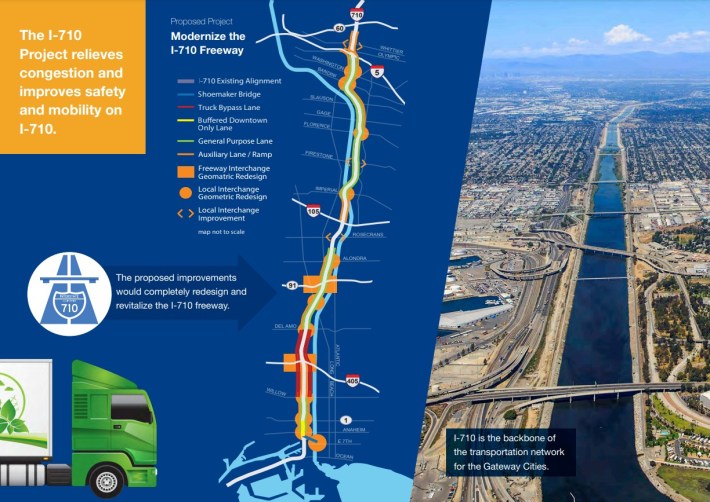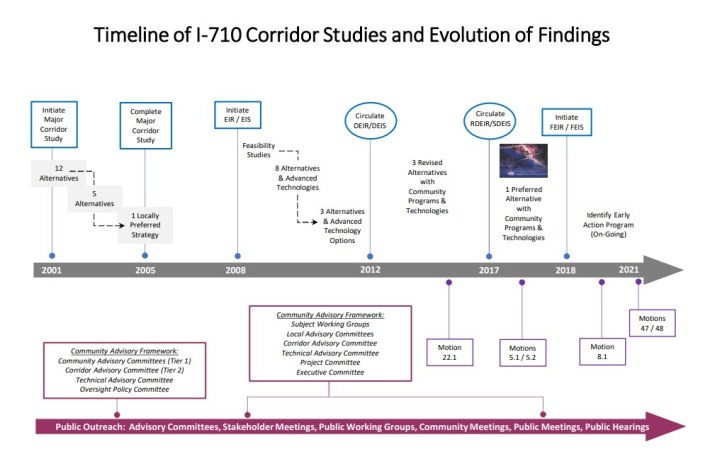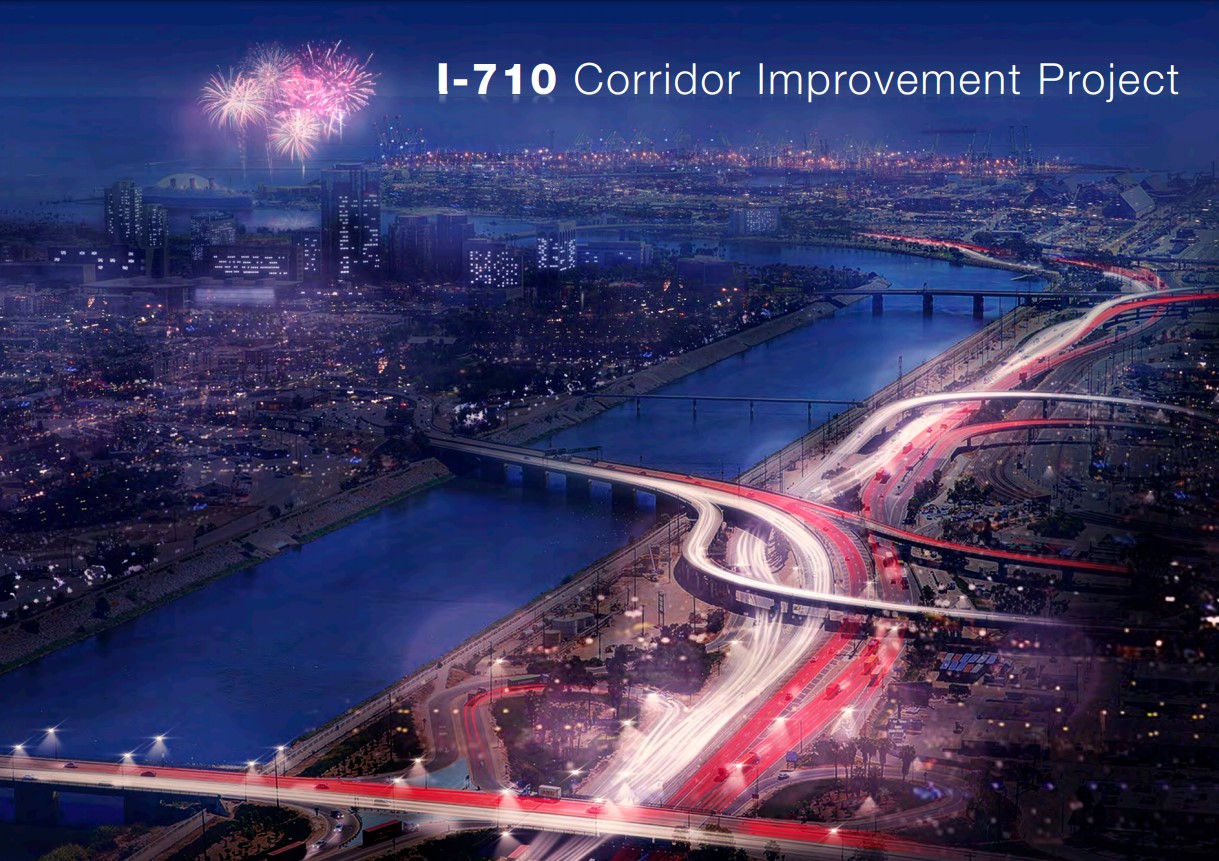
Next Wednesday, the Gateway Cities Council of Governments (GCCOG) will host a joint meeting of its board and executive committee to weigh in on Metro and Caltrans' plans to widen the lower 710 Freeway.
That's the 710 project that the community said was harmful, the Environmental Protection Agency said was basically illegal under clean air law, Caltrans said was on hold, the L.A. Times said was a zombie, and the Metro board said was suspended.
The GCCOG has a long track record for supporting harmful freeway widening projects - on the 710, the 605, the 5, the 91 - plus widening ramps and city streets connected to various Gateway area freeways. Next week's meeting appears to be an attempt by GCCOG leadership to try to breathe life (or at least some prolonged undead shambling) back into the zombie 710 project. There will also be some discussion of some other Gateway area 'freeways' - not just the 710.
Interested readers should make plans to attend the GCCOG Zoom meeting on Wednesday, July 7 starting at 6 p.m. The meeting will include public comment and appearances by a broad range of agency leadership: Metro Board Chair Hilda Solis, Metro Boardmember Janice Hahn, Metro Boardmember Fernando Dutra, Metro CEO Stephanie Wiggins, Caltrans District 7 Director Tony Tavares, and others.
Full meeting details can be found at the 106-page agenda packet - a few images from the packet are included above and below. Pre-register via Zoom to receive an email confirmation with the meeting link.









